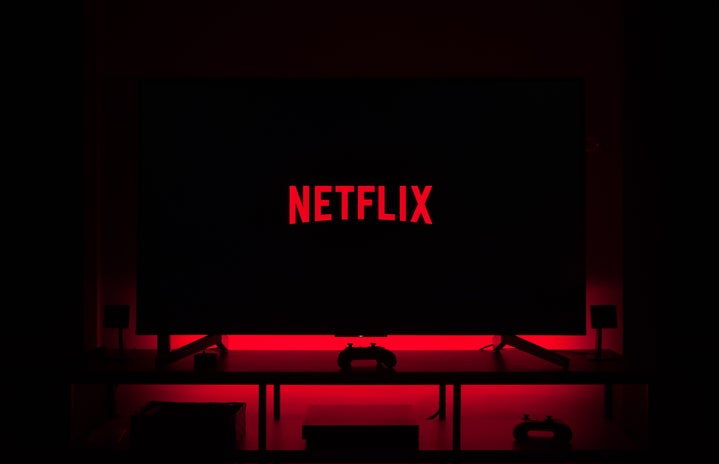Netflix’s ever-expanding repertoire of original content continues to impress with its thought-provoking films, and FairPlay is no exception. Directed by the talented Chloe Domont, this cinematic gem delves into the complex dynamics of romantic relationships, exploring the pervasive themes of ego and greed that often lie beneath the surface of love.
The movie made its grand debut at the Sundance Film Festival in January, generating a buzz that led to a substantial acquisition by Netflix. Now, as FairPlay arrives for an international audience, it has lost none of its urgency, largely thanks to a captivating performance by the gifted Phoebe Dynevor and Domont’s unshakeable vision.
The story kicks off with Dynevor’s character, Emily, an analyst at a high-stakes financial firm in New York City. We first meet her standing on a cold ledge during a jubilant party, isolated and immersed in her thoughts. It’s not long before her co-worker and clandestine lover, Luke (played by the charismatic Alden Ehrenreich), joins her. He sweeps her into the festivities, where they partake in a passionate tryst in a bathroom, leaving their clothes marked by the stain of menstrual blood. A hasty engagement follows, fueled by their undeniable chemistry.
The following day, Emily and Luke awake on their apartment floor after a night of intense lovemaking. They share an enviable rhythm, both emotionally and in their daily routine. They meticulously prepare for their day, down to dressing in power suits and Em’s six-inch heels, before parting ways to the office, where they conceal their relationship due to company policies.
Emily and Luke, both ambitious analysts, are equals in their workplace and share a fervent desire for a promotion. When a portfolio manager’s explosive departure leads to a security call, they seize the opportunity to climb the corporate ladder. However, when Luke’s promotion dreams are dashed and Emily’s realized, their carefully calculated careers and romance start to unravel.
Domont’s tightly structured script and skillful direction subtly depict the relationship’s gradual deterioration. What begins with support and understanding between the lovers transforms into a volatile situation filled with resentment and accusations. The film employs clever visual cues to emphasize their growing divide, with scenes of once-intimate moments evolving into cold and distant encounters.
Throughout FairPlay, the film drops breadcrumbs about Emily and Luke’s distinct economic backgrounds. Both are Ivy League-educated, but Emily’s journey involved overcoming adversity, while Luke’s path was smoother. The film underscores how Emily navigated sexism in her career that Luke could never fully comprehend.
As the relationship crumbles, Luke begins weaponizing this sexism to undermine her, affecting her self-confidence and business instincts. A popular line from the film that has been making waves on TikTok is Luke’s sarky remark “How do you expect other people to take you seriously if you dress like a cupcake?” This leads Emily to abandon her usual ruffle blouse for a more “invisible” black turtleneck.
The movie also masterfully explores the power dynamics within the relationship, professionally and sexually. While Emily and Luke are equally capable of their jobs, the film underscores that Emily’s instincts, combined with her unwavering work ethic, make her a better employee. Nevertheless, Luke clings to a sense of entitlement as if he deserves his position in life simply because he desired it for so long. This entitlement contrasts with Emily’s hard-earned success, adding tension and complexity to their relationship.
Sexuality plays a pivotal role in the film as well. Initially, their passion is equally shared, with both partners focused on mutual pleasure. However, as Emily’s career surges, Luke’s mounting resentment results in issues of impotence, manipulation, and, eventually, force. The film’s symbolic use of sexuality effectively underscores the idea that male violence is a sign of weakness rather than strength.
Alden Ehrenreich delivers a compelling performance, portraying Luke’s descent into obsession and manipulation with great skill. However, it is Phoebe Dynevor who truly shines in the film. Her portrayal of Emily’s internal struggles, hidden beneath a composed exterior, is captivating. Dynevor skillfully conveys her character’s emotions through subtle expressions, from anger and joy to stress and sorrow, capturing the emotional toll of her double life.
FairPlay ultimately reaches a climactic scene that pays homage to Gaslight by George Cukor, providing an in-depth exploration of the power dynamics within a couple’s public and private lives. Domont’s homage to this classic is both well-executed and earned.
While the film occasionally veers into theatricality, particularly with its grand monologues and repetitious settings, Domont’s talent for building slow-burning tension and exploring power dynamics in relationships and corporate settings is undeniable. Her direction and outstanding performances cement her status as a director with a distinctive and compelling voice.
FairPlay is a compelling exploration of ego and greed within romantic relationships set against the backdrop of the high-stakes financial world. The film’s unforgettable performances and exploration of power dynamics make it a must-watch for those interested in the intricate complexities of human relationships and the impact of ambition on love. The film stands as a testament to cinema’s power in dissecting the human experience’s intricacies.


